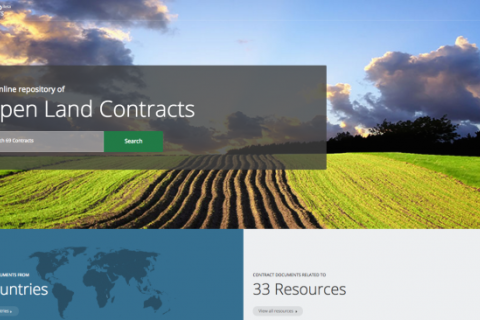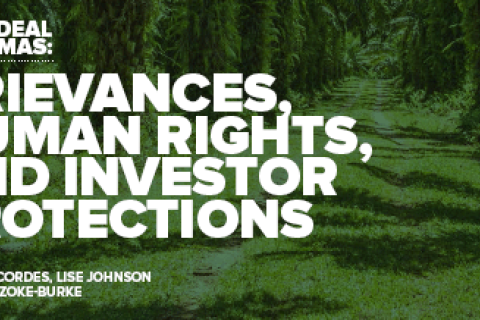Kaitlin Y. Cordes developed and leads the Columbia Center on Sustainable Investment’s work on investments in land and agriculture, as well as the Center's work on the intersection of human rights and international investments. At the Center, Kaitlin conducts and supervises research; creates resources and tools; designs and lectures at trainings; provides technical and advisory support on land and human rights issues; and convenes cutting-edge dialogue. Prior to joining CCSI, she worked with the Africa Division of Human Rights Watch and served as an advisor to the UN Special Rapporteur on the right to food (Olivier De Schutter). She also has worked with a range of social justice organizations in the United States and India, and clerked for Justice Virginia A. Long of the Supreme Court of New Jersey. She holds a bachelor of arts in Political Science and International Studies from Northwestern University and a juris doctor from Columbia Law School, where she was a James Kent Scholar, a Harlan Fiske Stone scholar, and recipient of the Valentin J.T. Wertheimer Prize and a Parker School Certificate in Foreign and Comparative Law. She is admitted to the bar in New York.
Details
Location
Contributions
Displaying 1 - 7 of 7Is There a Human Right to Land?
Ask a land rights defender if there is a human right to land, and she will likely say “Yes, without a doubt.” For people around the world, land is a source of food, shelter, and livelihoods; it’s an economic asset, a crucial safety net, a link with culture and social identity, even a living relative or ancestor. Given their importance, land rights are surely human rights.
Land, Resource Investments, and Climate Change: 3 Key Takeaways
Any discussion on climate change and sustainable investment in natural resources must grapple with land—a complicated yet crucial component of the search for equitable climate change solutions. In the context of resource investments, land is deeply entwined with both climate change impacts and climate change actions. At the risk of oversimplifying a complex and nuanced topic, here are three key takeaways on the interactions between resource investments, land use, land rights, and climate change.
Opening up land contracts and land data ... with caution
This is a contribution to our ongoing debate 'Open Data and Land Governance: Increased accountability and transparency as a means to overcoming poverty?'. Join in and ad your voice to the discussion!
By Kaitlin Cordes, Head of Land and Agriculture at the Columbia Center on Sustainable Investment
Navigating Governments’ Obligations in the Context of Land Investments
By Kaitlin Y. Cordes and Sam Szoke-Burke
How should governments address the concerns of their citizens tied to land investments? And do their legal obligations constrain their options for doing so?
New Publication: Governing Natural Resources
The Columbia Center on Sustainable Investment (CCSI) has recently published an outcome note from a roundtable focused on lessons learned from good governance initiatives for extractive industry investments and large land-based agricultural investments.
U.S. National Action Plan to promote responsible business conduct should consider outward investment in large-scale agriculture
The U.S. Government is working to develop a National Action Plan to promote responsible business conduct abroad that is consistent with the UN Guiding Principles on Business and Human Rights and the OECD Guidelines for Multinational Enterprises. This process provides an opportunity to reflect on how the United States can develop regulatory and voluntary measures that will help U.S. companies act responsibly and consistently with the UN Guiding Principles, regardless of the host country operating environment.
The U.S. Government's National Action Plan should address U.S. business conduct related to large-scale agricultural investments
The U.S. Government is working to develop a National Action Plan to promote responsible business conduct abroad that is consistent with the UN Guiding Principles on Business and Human Rights and the OECD Guidelines for Multinational Enterprises. This process provides an opportunity to reflect on how the United States can develop regulatory and voluntary measures that will help U.S. companies act responsibly and consistently with the UN Guiding Principles, regardless of the host country operating environment.






